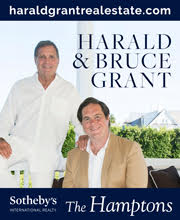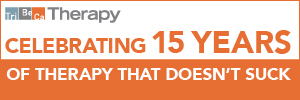Reflecting on another crisis, 19 years ago
When I bought the Tribeca Citizen from Erik just over a year ago, I never thought I would be producing daily coverage of a pandemic for weeks on end. In fact, on March 11 I was chatting on email with S. and Tom Miller about the history of a building called Hope. That’s my marker for when this all began — the last post I did in the “normal” Tribeca. In the past month, not only has the world turned upside down, but we still don’t know when it will right itself.
There is one thing I keep hearing from shopkeepers, residents, business owners: even September 11th didn’t feel this way. There is a pall — maybe it’s the uncertainty — that has yet to lift. Perhaps folks in other neighborhoods are feeling the same way, but other neighborhoods were not ours nearly two decades ago and don’t have that same point of comparison.
It first sunk in when I got this note from Hal Bromm on March 19, who was by then working remotely after he closed his West Broadway gallery:
“These days I think back to the morning of September 11th. Walking north on the Westside Highway among the silent, stunned procession of powder-covered survivors, a ringing phone interrupted. A man near me answered his mobile, stunning us all as he shouted, “They’ve just hit the Pentagon!” It felt like WW3 had begun.
After ending the call, he observed to no one in particular that this day will change everything. How right he was. But perhaps that sea change to all our lives will ultimately seem small compared to the impact this will have on our lives. Who knows what life a year from now will look like?”
I was not here in 2001 — we moved from Chelsea in 2004 — but I welcome here in comments thoughts and reflections on that time versus this one. And what we might do to make our lives look somewhat similar to the one we left behind a hundred years ago.















Disasters are local/regional. Pandemics are global.
We have survived many disasters. Some that have directly impacted us, and some that we have observed from afar, but you can always go someplace else and find some comfort in unaffected places where things remain normal.
This is different. We don’t get to decide whether we want to work/stay open. It doesn’t go away on a pre-determined date. All we know is every day that goes by means another handful of businesses that don’t return. There is no place to retreat to. The world is shut down and nobody has talked about a plan on how it turns back on.
So yeah… uncertainty. Post 9/11, people picked up, and left Tribeca to continue life and heal. They could reclaim some shred of normalcy even if it changed the world we live in today.
In the pandemic, there is nowhere to go, and you watch the economic disaster happening now tear down the world outside your window. Except everything looks normal. It’s just that everything is hollow.
That one felt more “communal”, and people pulled together. There was more warmth and solidarity than usual in this town (or maybe that was just my impression). Now it pulls everyone apart. Although, if you have a good family life, for example, it can pull you together in that small group, but still not in that wider sense of community.
Also, with 9/11: Most people were still able to work through the times after, so at least it didn’t have that additional level of economic chaos, above and beyond the deaths and physical suffering.
Work itself can be therapeutic for many, creates a sense of stability, and of course provides income. In the current crisis, so many (most?) cannot even work. So there can be a feeling of powerlessness, futility, emptiness, and of course fear and stress about how to pay the bills and make ends meet.
Both crises have this in common, however: Both are cruel reminders of the fragility of our lives.
After 9/11, those closest to the site were more affected, for a much longer period of time than those even in other parts of Manhattan. So, while they were getting on with their lives, we were still displaced and dealing with insurance, damage to our homes, health and a host of other issues.
It wasn’t that these folks weren’t in shock or deeply affected, it was just that the impact on their daily lives was minimal. Yes, they read about us, couldn’t take some subway lines, but…
If this sounds odd, think about how much, and how long, we are deeply impacted by natural disasters in Puerto Rico, Texas, wherever. How long does it take for those to move to the inner pages of the newspaper, and then disappear? 9/11 wasn’t that bad, but the dynamic was still the same.
So it was very communal if you lived down here but less so until you reminded friends.
With the pandemic, everyone, everywhere is dealing with the same things. I talk and text with friends all over the world and we’re all locked in our homes, bored, dealing with the local manifestation of how this impacts are particular city or country. And, as a 70 year old, everyone my age is wondering how we will ever be able to leave our apartments, and how long it will take before we can.
On 9/11 and after for those of us displaced, who returned, and who remained, the fact of the lives taken and physical destruction was unavoidable, and daily for a year and more. That part of the experience was unique for those of us who lived below Canal (admittedly, an arbitrary line, but a longtime physical border enforced back then by police and soldiers).
I think it’s early still for conclusions from the events of the past month, although they are consequential, many devastating. Two observations, however. It’s important to continue with as many good and necessary things in one’s daily life as possible, whatever those may involve. The other is to take care along the way of one’s mental and emotional health. The latter can get devalued or suppressed in service of the former.
Standby
Although I am fearfully afraid for all.
The irony is entertaining
Truly hope happy days ahead
While the rest of the country did declare solidarity with us after 9/11, they did not experience the 6 month long fires and toxic air that we did.
But most importantly I want to say this: we were lied to then and we are being lied to now. Christine Todd Whitman, then head of the EPA told us the air was safe to breathe when it most definitively was not. Bush blamed the Iraqis and lead us into a war built on lies, dismantling societies everywhere with massive support on both sides of the aisle. The press did not dare to challenge him. Are we still recovering? Some would say we have not.
Because now we are being lied to by Trump and his team. But today, there are segments of the government, fed, state and local, and the press standing up for the truth. As the curve sharpens and flattens, as the days and weeks turn into months and years, our neighborhood, and all neighorhoods bear enormous responsibility to vote for those who stand for the truth. This did not have to be this bad. Never again, again.
Thank you.
Yes. Thank you
Oh…and my GO bag has become a STAY bag.
This is not my attempt to one up a tragedy, or say one had a “greater effect” on one than the other, or decide which factors of a tragedy bear more weight, rather simply a specific observation.
During 9/11, going immediately back to work in the face of losing many friends and colleagues, as crazy at it sounds, was a way to cope with the grief, something to take your mind off of events and bizarrely using it to ignore a lot of feelings. Probably not the right way to cope but it helped.
Covid does not offer that option, rather it has the added stress of not earning any income, and the strain of wondering for how many years things will be financially difficult. It just feels like a lot of industries are going to be harmed for a long, long time. This won’t end with the flick of an “ok” switch.
As a local I fear which great small businesses can actually survive, the ones that make this area a place we all want to reside. If they can’t make and are replaced by chains, or remain shuttered for years, we’re then left with (even more) mediocrity. It could have a ripple effect anywhere from increasing crime to schools deteriorating to having to spend too much to live in a place that lost its magic.
Again these tragedies have real human injuries and loss of life, devastation to families. Financial aspects are nowhere near as important , but that doesn’t mean they don’t also exist and have the ability to be felt negatively for years.
For me, the big difference is that on 9/11 I was forced out of my home; now, I am forced to stay at home. As part of the human family, our instinct is to reach out and help. That was easy to do after 9/11 — I remember stirring huge kettles at Bouley. Activities helped us to feel like heroes rather than victims. That is a great gift to survivors. And, of course, having an enemy that can be seen without a microscope makes it too easy to visualize and hate. At least this time around, we can avoid that and, if we do declare war, it will be on a disease!
Everything Heide says is true. No one above Canal knew what was going on. And the smell. I will never forget the smell, never forget sitting on the bus watching a flag covered body being escorted out of the pit. Oh yes, we were lied to. And now all these years later. people have died, have recurring cancers, have PTSD, are numb, 9/11 eventually became an individual experience because we each had our own experience. The one difference between 9/11 and this virus is everyone in the world is suffering in some way because of this virus, we all understand.
I was 17 and living in Tribeca on 9/11. Despite the horror, I know that I and many of our neighbors spent the subsequent days going to friends and family for comfort. We gathered in lobbies and on corners, we walked the margins of the neighborhood together to find groceries or pay phones. We shared and we talked and we were physically together trying to make sense of it all.
Now we’re forced apart. No contact. No connection. No comfort. As another poster said, the face-to-face communal experience is absent. This is a very solitary tragedy that is – paradoxically -impacting everyone on earth simultaneously. The scope is wider and yet so much lonelier.
But what of the effects and the aftermath? After 9/11 what happened?, we went to war, we beefed up security everywhere so that the smallest activity involved a search or a metal detector, some effort was made to coordinate first responders but the world largely went on as before. Few, if any, real lessons were learned
What will happen after this? Will lessons be learned? Will the richest country in the world actually discover that our health care system is not as great as we thought even though many of its workers are heroes. Will we learn that immigrants and ‘foreigners’ and low-paid workers actually are the backbone of our human services not enemies to be penned behind a wall or to be short-changed with pay that barely allows survival. Will we start to conceive that maybe human life and its quality is really more important than the Dow Jones Industrial Index? Will we understand that working from home may not be ideal for some but can give flexibility to others. Will the terrible inequalities in economic and social life be evened out at all?
I doubt it. I suspect that this lesson which nature has dealt us will not be absorbed and it will be ‘business as usual’ as soon as the lock-down is lifted. Reflections and the lessons of the past are, sadly, seldom applied to the future.
But this time, we could try.
The biggest difference is the lack of community; being unable to
reach out,unable to get together; to share. 9/11 was a bullseye hit. The dust and air and lies hit us all hard. But you were either a 9/11 survivor or you were not. This virus is world wide. And it will pass at some point and the world will “move on.” After serving food for 8 months at St Paul’s Chapel I went on to be (and still am) a docent at the 9/11 Tribute Center. Will people still come from all over the world to hear a 9/11 survivor’s tale? The City has also broken up our super local preparedness teams (Tribeca CERT is now just a part of city-wide geographic divisions serving chunks of the city–no neighbor to neighbor outreach).Global pandemic. Government lies. Lots of lives lost. Nothing changes without truth.
The biggest difference was that our leaders and experts saw this coming months ago. China was building large hospitals within a week and it was just passed off as interesting time-lapse video instead of, “Oh shit, did you see that movie CONTAGION? This shit is for reals, yo!!!” Politicians failed us yet again. As they always do…again and again and again and again and again…
But who voted for them….again and again and again and again…
If only Jared had worked harder on getting a secret “back channel” to China.
And politicians were selling/buying stock based on Covid-19 info and not issuing dire warnings to the public they represent.
Another aspect of 9/11 was the immediacy and shock of the initial impact. One minute you might have been voting, or getting a coffee with a neighbor, and then……the sound, sight and smell of the world coming apart.
With the pandemic, it was a crawling hazard that arrived while we watched complacently. And by “we” I mean that it’s not just our government – many of us watched China deal with COVID-19 with passing interest in the scale of building a hospital in 10 days but perhaps a bit arrogant about the likelihood of its impact in our own neighborhoods. For months you could sort of opt out of dealing with the pandemic; that was NOT how 9/11 felt.
In addition to the aspect of immediacy/shock, the way forward is different. With 9/11 we were galvanized by our shared experiences and banded together to help each other: feed first responders (Bouley), give children a place to experience joy (GroundHeroKids at the old firehouse on White St), developed CERT teams, organized RedCross visits, EPA cleaning teams, etc.
With the pandemic, we help each other by “distancing” and putting money into gofundme accounts or buying gift cards to local shops – sincere in our feelings and desire to help but empty at the same time.
Our resilience however – as a neighborhood, as neighbors – is the same. We will make our way through once more and come out stronger for it.